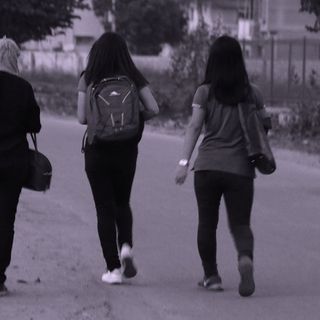The Maharashtra Cabinet announced today it will grant an additional 180 days of paid maternity leave to female government employees, on top of the 180 days of paid maternity leave mandated nationally.
“The cabinet decision confined to government employees was taken to enable better parenting,” cabinet minister Sudhir Mungantiwar told The Indian Express. If the “wife” — presumably, they mean ‘mother,’ given that women do not necessarily have to be married to be able to give birth — is not alive, The Indian Express reports, male employees responsible for parenting children below 18 years of age can take the leave instead.
Unfortunately, each time India attempts to help working mothers, it ends up shooting itself in the foot, and more importantly, potentially harming women’s careers. Earlier this year, India passed the Maternity Benefits (Amendment) Act, which extended paid maternity leave to 180 days. But because the Centre did not extend similar leave to new fathers, nor offer subsidies to employers, women of so-called ‘childbearing age’ have consequently become less attractive to employers, who do not want to bear the cost of such a long leave.
It’s not unreasonable to expect government employers to react in a similar manner, yet the Maharashtra government has not explicitly stated how it intends to prevent the possible loss of women in government that this policy could incur. In any case, it’s not like they’re doing particularly well on that front: As The Indian Express reports, currently, only 25 to 30% of government employees are women.
The Maharashtra Cabinet evidently believes that their new policy will allow children better care. They also evidently believe only mothers can provide it. But while studies do show that increased parental leave is linked to better school performance in kids, crucially, the most recent study found this link in Austria, where both moms and dads can avail of paid family leave. There is nothing to suggest raising children is better when done by moms than dads, beyond sexist attitudes. Perhaps unsurprisingly, India does not currently have any provisions for paid paternity leave.
Of course, there’s also the question of Mungantiwar’s inarguably condescending tone. That the policy was put in place to “enable better parenting” implies that a woman returning to work after six months of raising a child on her own is currently not parenting in an adequate manner. It tacitly suggests that women who don’t take more time off work to parent are not doing enough.
Mungantiwar’s tone is not inconsistent with Women and Child Development Minister Maneka Gandhi’s. “Paternity leave can be considered only if, once the woman goes back to work after her 26 weeks of leave, we find that men are availing their sick leave for a month to take care of the child,” she said in 2016. Evidently, in the government’s view, the only circumstance when a father can be expected or needed to provide childcare is if his wife is dead.




